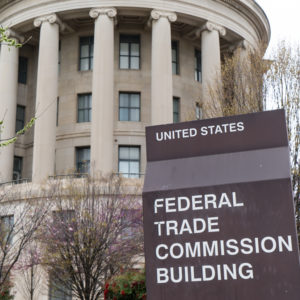If finalized, the Federal Trade Commission’s proposed noncompete trade regulation would effectively ban the use of noncompete clauses in employment contracts. Employers and their workers would generally no longer be allowed to contract away the ability of employees to go to work for a competitor, anywhere, anytime.
Worker mobility might be enhanced, but the need to protect trade secrets, proprietary knowledge and customer goodwill would have to be satisfied in another way.
The proposed rule stands in sharp contradiction to the purposes of the Trade Secrets Act of 2016, which established a “civil cause of action for trade secret misappropriation” and encourages trade secret protection.
Instead of prohibiting noncompete contract language, the FTC might consider a bit of regulatory temperance. Mark Twain reminded us, “We should be careful to get out of an experience only the wisdom that is in it and stop there lest we be like the cat that sits down on a hot stove lid. She will never sit down on a hot stove lid again, and that is well, but also she will never sit down on a cold one anymore.”
Put another way, there must be circumstances where competitively derived noncompete restrictions do far more good than harm, as when protecting trade secrets or accepting higher wages in exchange for reduced mobility. Maybe we should try to preserve some “cold stove” sitting.
But at present, according to the FTC rulemaking notice, “about one in five American workers — 30 million people — are bound by a noncompete clause and are thus restricted from pursuing better employment opportunities.”
Empirical work indicates that a large part of those who voluntarily signed noncompete agreements are lower-paid workers. A 2021 Federal Reserve Bank of Minneapolis study found that among workers earning $20 per hour or less, 12 percent reported having a noncompete contract in their current or most recent job, compared with 18 percent earning more than $20 per hour. Better than 22 percent of the noncompete language is found in contracts for people in sales, the highest-ranking occupation; around 20 percent are in management.
The FTC is aware that state legislative action is underway that addresses some of these concerns. In 2022, 13 states had noncompete language legislation on the books. These laws generally prohibited such contracts for lower-wage earners. Among the states, Oregon no longer enforces noncompete agreement enforcement; Massachusetts limits enforcement and the District of Columbia has outlawed noncompete contracts entirely.
In the rulemaking announcement, the FTC asked for comments on whether senior executives should be exempted from the rule or be subject to a rebuttable presumption rather than a ban. Of course, senior executives and other employees should be expected to look out for their interests when accepting the terms of an employment contract. Having a rebuttable presumption, which seems far better than an outright ban, says you are guilty until proven innocent.
Perhaps the FTC should follow its regulatory practice in regulating advertising that requires firms to have prior substantiation of advertising claims that can be provided should the regulatory cops blow the whistle. Maybe firms that keep noncompete contracts to protect trade secrets and propriety knowledge should have written justification on hand and be prepared to defend their action. In all cases, market forces should be relied on as much as possible.

